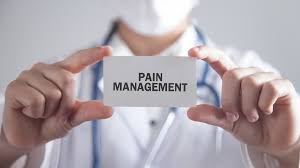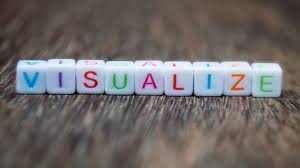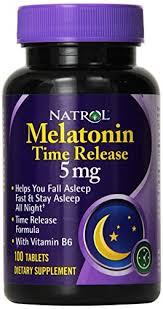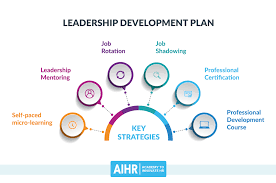Effective Strategies to Manage Pain
Pain is a common and often debilitating experience that can affect our physical, emotional, and mental well-being. Whether it’s acute pain from an injury or chronic pain from a medical condition, finding ways to manage and alleviate pain is crucial for maintaining a good quality of life.
Here are some effective strategies to help you manage pain:
Mindfulness and Meditation
Practicing mindfulness and meditation techniques can help you focus on the present moment and reduce stress, which in turn can alleviate pain. By cultivating a sense of awareness and acceptance, you may find relief from the intensity of your pain.
Physical Therapy
A physical therapist can work with you to develop a personalized exercise program that strengthens muscles, improves flexibility, and reduces pain. Physical therapy can also help improve your overall function and mobility, making daily activities easier to perform.
Heat and Cold Therapy
Applying heat or cold packs to the affected area can help reduce inflammation, numb the area, and provide temporary relief from pain. Alternating between heat and cold therapy may be beneficial for certain types of pain conditions.
Medication Management
If necessary, over-the-counter or prescription medications can be used to manage pain. It’s important to work closely with your healthcare provider to find the right medication at the appropriate dosage for your specific needs while minimizing potential side effects.
Acupuncture
Acupuncture is an ancient practice that involves inserting thin needles into specific points on the body to stimulate energy flow and promote healing. Many people find acupuncture helpful in reducing various types of pain, including back pain, migraines, and arthritis.
Cognitive-Behavioral Therapy (CBT)
Cognitive-behavioral therapy focuses on changing negative thought patterns and behaviors that may contribute to your experience of pain. By learning coping skills and relaxation techniques, you can better manage your response to pain triggers.
In conclusion, managing pain effectively requires a multi-faceted approach that addresses both the physical and emotional aspects of pain. By incorporating these strategies into your daily routine and working closely with healthcare professionals, you can take control of your pain management journey and improve your overall well-being.
8 Benefits of Effective Pain Management: Enhancing Quality of Life and Well-being
- Improves quality of life by reducing discomfort and enhancing overall well-being.
- Allows for better mobility and functionality, making daily activities easier to perform.
- Helps individuals focus on tasks and goals without being distracted by pain.
- Promotes relaxation and reduces stress levels, contributing to better mental health.
- Can lead to decreased reliance on pain medications, minimizing potential side effects.
- Encourages individuals to adopt healthier lifestyle habits that support pain management.
- Empowers individuals to take an active role in their own health and well-being.
- Enhances the ability to engage in social activities and maintain relationships.
Challenges in Pain Management: Side Effects, Trial-and-Error, and the Risk of Dependency
- Some pain management techniques may have side effects, such as drowsiness or digestive issues.
- Finding the right combination of treatments that work for an individual can be a trial-and-error process.
- Long-term reliance on pain medications may lead to dependency or tolerance, requiring higher doses for the same level of relief.
Improves quality of life by reducing discomfort and enhancing overall well-being.
Managing pain effectively can significantly improve one’s quality of life by reducing discomfort and enhancing overall well-being. By implementing strategies to alleviate pain, individuals can experience a greater sense of physical comfort and emotional stability, allowing them to engage more fully in daily activities and enjoy a higher level of functioning. This improvement in well-being not only enhances the individual’s own life but also positively impacts their relationships, work performance, and overall satisfaction with life.
Allows for better mobility and functionality, making daily activities easier to perform.
Effective pain management strategies can significantly improve mobility and functionality, ultimately making daily activities easier to perform. By addressing and alleviating pain, individuals can move more freely, engage in physical tasks with greater ease, and maintain a higher quality of life. Improved mobility not only enhances independence but also boosts confidence and overall well-being, enabling individuals to participate more fully in their daily routines and activities.
Helps individuals focus on tasks and goals without being distracted by pain.
Effective pain management enables individuals to concentrate on tasks and pursue their goals without the interference of persistent pain. By alleviating discomfort and reducing distractions, individuals can maintain focus, productivity, and motivation in their daily activities. This improved ability to engage fully in tasks and aspirations can lead to a more fulfilling and successful life, enhancing overall well-being and quality of life.
Promotes relaxation and reduces stress levels, contributing to better mental health.
One significant benefit of effectively managing pain is that it promotes relaxation and reduces stress levels, which in turn contributes to better mental health. By implementing strategies to alleviate pain, individuals can experience a sense of calmness and ease, allowing them to focus on positive thoughts and emotions. This reduction in stress not only improves overall well-being but also enhances mental clarity and resilience in facing daily challenges.
Can lead to decreased reliance on pain medications, minimizing potential side effects.
One significant benefit of effectively managing pain is the potential to reduce reliance on pain medications, thereby minimizing the risk of experiencing adverse side effects. By implementing alternative pain management strategies such as physical therapy, mindfulness techniques, or acupuncture, individuals can decrease their dependence on medication while still achieving relief from discomfort. This approach not only promotes a more holistic and sustainable way of addressing pain but also helps mitigate the potential risks associated with long-term use of pain medications.
Encourages individuals to adopt healthier lifestyle habits that support pain management.
Encouraging individuals to adopt healthier lifestyle habits that support pain management is a proactive approach that can have long-lasting benefits. By promoting activities such as regular exercise, proper nutrition, adequate sleep, and stress management techniques, individuals can improve their overall well-being and reduce the impact of pain on their daily lives. These lifestyle changes not only help in managing pain more effectively but also contribute to a healthier and more balanced lifestyle in the long run.
Empowers individuals to take an active role in their own health and well-being.
One significant benefit of managing pain is that it empowers individuals to take an active role in their own health and well-being. By learning effective pain management strategies and implementing them into their daily lives, individuals gain a sense of control over their physical and emotional experiences. This proactive approach not only helps in alleviating pain but also fosters a deeper understanding of one’s body, leading to improved overall health outcomes and a greater sense of empowerment in navigating personal wellness.
Enhances the ability to engage in social activities and maintain relationships.
Effectively managing pain can significantly enhance one’s ability to engage in social activities and maintain relationships. By reducing the physical and emotional burden of pain, individuals are more likely to participate in social gatherings, events, and interactions with loved ones. This improved engagement can lead to stronger connections, increased social support, and a greater sense of belonging within a community. Additionally, managing pain allows individuals to focus their energy on meaningful interactions rather than being consumed by discomfort or limitations, ultimately fostering healthier and more fulfilling relationships.
Some pain management techniques may have side effects, such as drowsiness or digestive issues.
Some pain management techniques may have side effects that can impact an individual’s daily life. For example, certain medications used to alleviate pain may cause drowsiness, affecting one’s ability to concentrate or operate machinery safely. Additionally, other techniques like heat therapy or certain medications can lead to digestive issues such as nausea or constipation, further complicating the management of pain. It is important for individuals to be aware of these potential side effects and work closely with healthcare providers to find the most suitable and effective pain management approach for their specific needs.
Finding the right combination of treatments that work for an individual can be a trial-and-error process.
Navigating the realm of pain management can present a significant challenge due to the con of finding the right combination of treatments that work for an individual. This process often involves a trial-and-error approach, where individuals may need to experiment with various therapies, medications, and lifestyle changes to discover what provides them with the most relief. The journey to identifying the optimal pain management regimen can be time-consuming, frustrating, and emotionally taxing as individuals strive to find the right balance that effectively alleviates their pain while minimizing potential side effects or risks associated with certain treatments.
Long-term reliance on pain medications may lead to dependency or tolerance, requiring higher doses for the same level of relief.
A significant drawback of managing pain through long-term reliance on pain medications is the potential development of dependency or tolerance. Over time, the body may become accustomed to the effects of the medication, leading to a reduced response and necessitating higher doses to achieve the same level of pain relief. This escalation in dosage can increase the risk of dependency, where individuals may find it challenging to function without the medication or experience withdrawal symptoms when attempting to reduce or stop its use. Furthermore, building tolerance can pose a serious concern for long-term pain management as it may limit the effectiveness of medications and require alternative approaches to address pain effectively while minimizing reliance on opioids or other potent pain relievers.




